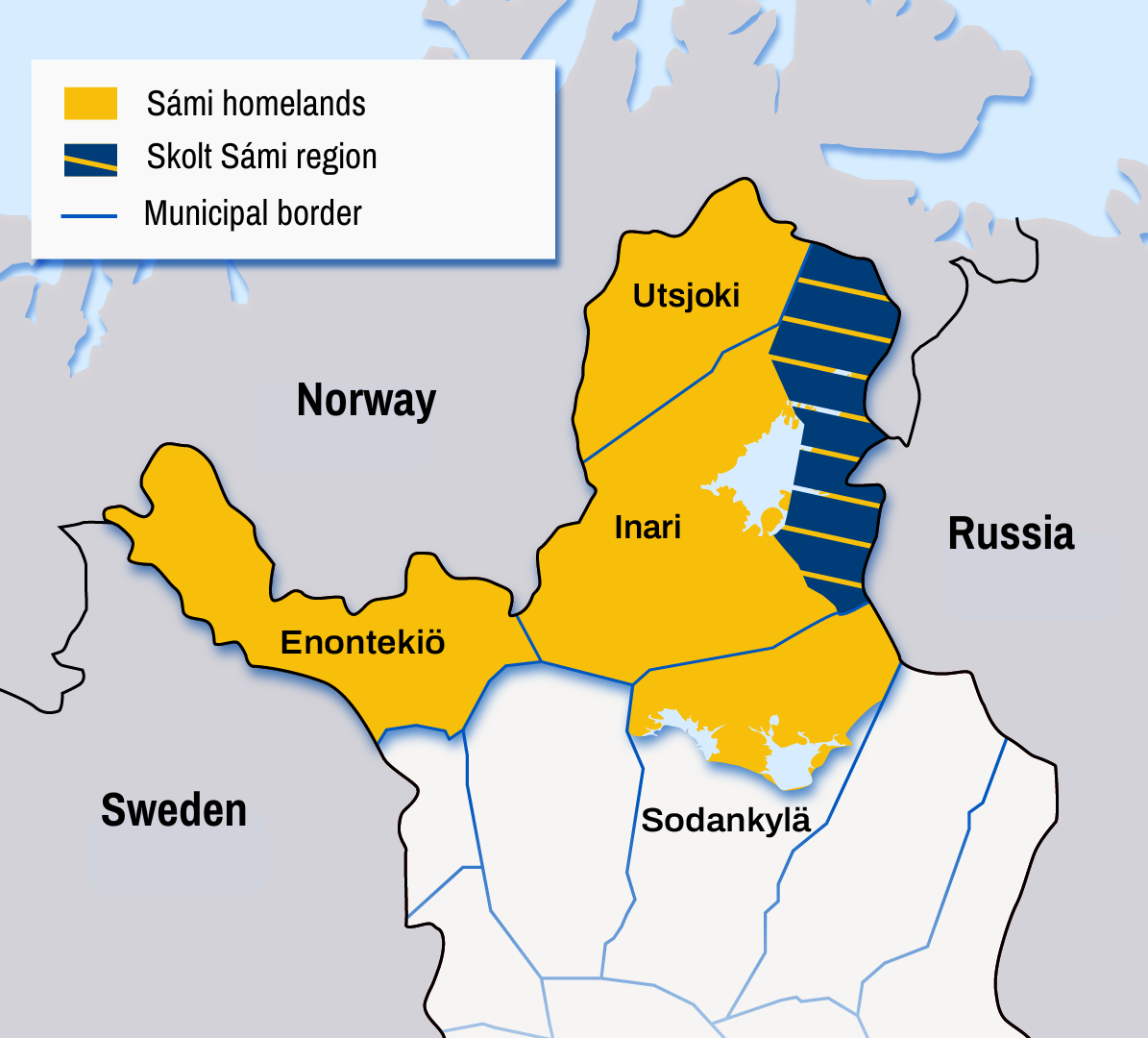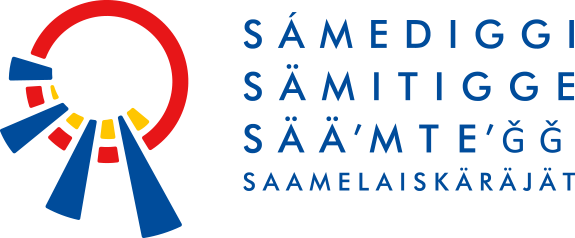The Sámi Parliament
The Sámi Parliament is the representative self-government body of the Sámi people in Finland. The foremost responsibility of the Sámi Parliament is to carry out its constitutionally ensured self-governance on language and cultural affairs, and to guarantee the preservation and advancement of Sámi Indigenous culture.
The Sámi Parliament is the instrument of Sámi self-governance
The Sámi Parliament is the self-government body of the Sámi people in Finland. It was established by the Sámi Parliament Act at the beginning of 1996. The Sámi Parliament was established on a constitutional basis following the constitutional reform of 1995. The predecessor to the Sámi Parliament was the Sámi Delegation, which was established by government decree. The Sámi Delegation was active from 1973 to 1995.
The foremost responsibility of the Sámi Parliament is to carry out its constitutionally ensured self-governance on language and cultural affairs, and to ensure the preservation and advancement of Sámi Indigenous culture. Sámi cultural self-governance applies to the Sámi home region, which is legislated in the Sámi Parliament Act. This area comprises the municipalities of Enontekiö, Inari, and Utsjoki, in addition to the Lappi reindeer herding district in the municipality of Sodankylä, i.e. the Vuotso area.

The Sámi Parliament operates under the administrative branch of the Ministry of Justice, but is independent from the authorities of the state government. Operations at the Sámi Parliament are financed by the national budget. In 2023, 2 539 000 € from the national budget was allocated for general operations for the Sámi Parliament. Through the Sámi Parliament, funding is also granted for Sámi language early childhood education, Sámi language social and health services, promotion of Sámi culture, activities of other Sámi organisations, and production of Sámi language learning materials. The Sámi Parliament also has various other projects, financed by e.g. the national government and European Union funds.
The Sámi Parliament states the official position of the Sámi
The Sámi Parliament states the official position of the Sámi and represents the Sámi people in domestic and international affairs within its mandate. In practice, many of the Sámi Parliament’s international delegations are organised as joint activities by the three Sámi Parliaments and the Sámi Parliamentary Council.
The Sámi Parliament enjoys autonomous power of decision. Annually, the Sámi Parliament provides approximately 200 initiatives, propositions, and statements to various authorities. The Sámi Parliament also appoints representatives to various working groups.
One of the main activities of the Sámi Parliament consists of consultations and negotiations with government officials. As per 9 § of the Sámi Parliament Act, authorities are required to consult and negotiate with the Sámi Parliament regarding any extensive and significant measures which might have an immediate and significant impact on the status of the Sámi as an indigenous people. This obligation to negotiate applies to e.g. the development of legislation affecting the Sámi, matters regarding Sámi language and education, land use, and the granting of Mining Act compliant permits in the Sámi home region.
In addition to nationwide legislation, operations at the Sámi Parliament are guided by a plan of operations, which is approved by the Sámi Parliament Plenum. The plan of operations governs e.g. appointed positions, various parliamentary bodies and their responsibilities, and administrative procedures at the Sámi Parliament.
At the beginning of each parliamentary term, the Sámi Parliament Plenum agrees upon a plan of operations for that term. The plan of operation establishes the goals for the parliamentary term. More precise goals for each year are established in the budget for that year. The fulfillment of these goals is assessed in the annual report. Sámi Parliament personnel policies are guided by a set of personnel policy documents, which include a personnel policy plan as well as an equality and non-discrimination plan.
The head office of the Sámi Parliament is in Inari, inside the Sámi Cultural Center Sajos. The Sámi Parliament also has a secondary office in Enontekiö.
Other Sámi representative bodies
In addition to the Sámi Parliament, the Skolt Sámi have their own separate decision-making body, the Skolt Saami Siida Administration. The Skolt Saami Siida Administration was legislated in the Skolt Act (253/1995). The Skolt Act aims to improve the living conditions and livelihoods of the Skolt Sámi people and the Skolt Sámi region, in addition to upholding and advancing Skolt Sámi culture. The Skolt Sámi area is in the eastern part of the municipality of Inari. Unlike the Sámi Parliament Act, the Skolt Act falls under the Ministry of Agriculture and Forestry.
The Sámi are one people across four countries. Sámi in Norway, Finland, and Sweden have their own representative bodies, the Sámi Parliaments.
The Sámi Parliament of Norway was established in 1987 (Act 1987:56) and began its work in 1989. Norway has ratified ILO Convention 169 on the rights of Indigenous peoples. The Constitution of Norway recognizes the Sámi as an Indigenous group.
The Sámi Parliament of Sweden was established in 1992 (Act 1992:1433) and began its work at the beginning of 1993. The Sámi Parliament of Sweden is both an autonomous institution and a national agency. The Sámi Parliament of Sweden operates under the Ministry of Culture. The Constitution of Sweden recognizes the Sámi as a people.



